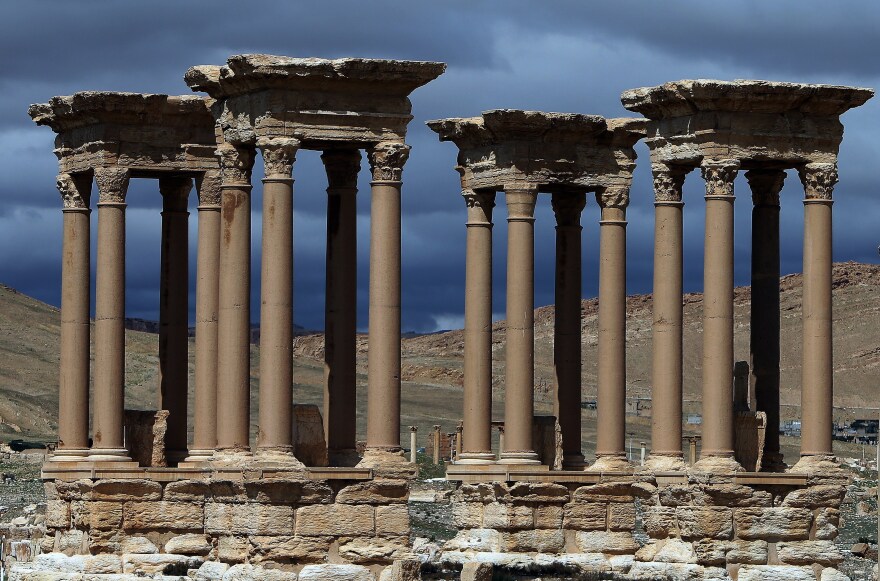Two famous ancient structures in the city of Palmyra have been destroyed by ISIS forces, Syria's antiquities chief says.
The Tetrapylon and the facade of the city's Roman theater have both been almost completely demolished, the official says, according to NPR's Alison Meuse.
"Activist Khaled al-Homsi, who is from Palmyra, shared satellite imagery to Twitter, which appears to confirm the scale of the damage," Alison reports. "The face of the Roman theater is a pile of rubble and only four of the Tetrapylon's 16 columns appear to be standing."
Photos show the size of the damage to the Roman theater and the Tetrapylon in #Palmyra.
— Khaled AL Homsi (@PalmyraPioneer) January 20, 2017
destroyed by criminals #ISIS pic.twitter.com/76kfVEGk15
Alison notes that this is the second time over the course of Syria's six-year civil war that the Islamic State has seized control of Palmyra. ISIS first captured the ancient desert city in 2015. The extremist group held it for more than a year before the Syrian government seized it back — and then lost it again last month.
The first time ISIS claimed Palmyra, they reportedly slaughtered men, women and children in the streets. They beheaded the 81-year-old scholar who was the director of antiquities in the city. And they devastated the UNESCO World Heritage Site's antiquities and monuments, unleashing what NPR's Frank Langfitt called, "an orgy of demolition."
"Using dynamite, fire, bulldozers and pickaxes, the wrecking crew targeted 2,000-year-old Greco-Roman temples, monuments and stone statues," Frank wrote last year.
ISIS often claims it destroys ancient sites because it considers the pre-Islamic art works heretical. But the group reportedly loots antiquities for profit, and as Washington Post reporter Liz Sly told Morning Edition in 2015, ISIS gets "masses of publicity every time they blow up or destroy something that is valued by the world."
When government troops recaptured Palmyra in 2016, they discovered the extent of the damage. The famed Temple of Bel was blown to pieces. The Temple of Baalshamin was destroyed. Artifacts in the museum were smashed. The iconic Arch of Triumph was in ruins.

After the last ISIS occupation of Palmyra, NPR's Kevin Beesley noted that while the damage to the city's historical sites was massive, "some of the major structures remain."
For instance, he said, the ancient Roman theater was still standing — but now that, too, has been destroyed.
Copyright 2020 NPR. To see more, visit https://www.npr.org.



